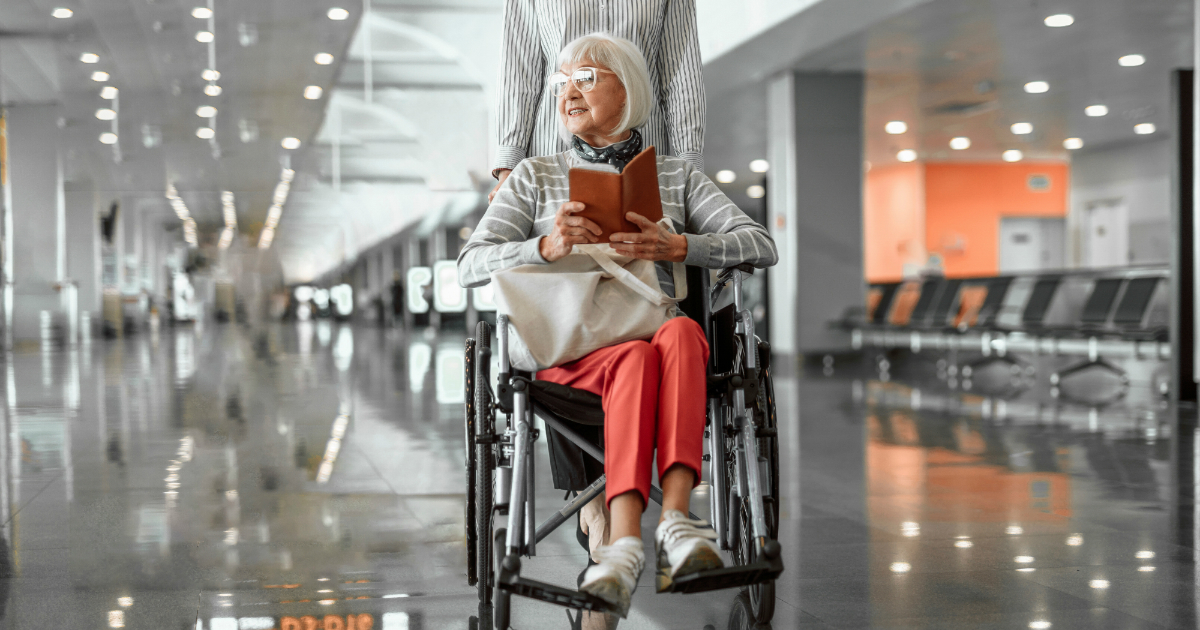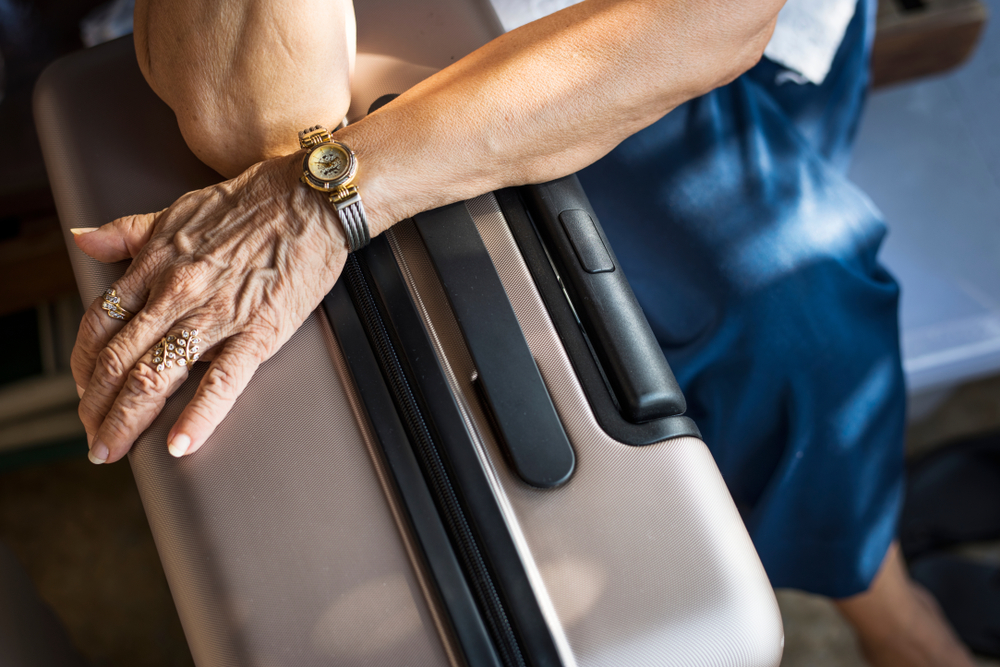
If you are caring for a parent with dementia, chances are, you will want or need to travel together at some point. Maybe you want to return to a favorite family vacation spot or take a trip to visit your siblings.
While traveling with someone with dementia can come with its ups and downs, it is certainly not impossible. It just involves taking a little extra care and thinking ahead. Of course, you’ll want to consider safety risks and medical needs, but you’ll also want to determine the best mode of transportation and avoid possible triggers.
To make your upcoming travels easier, we’ve provided a list of our top 11 tips and tricks for how to travel with someone with dementia.
1. Talk to a doctor
Before planning a trip, make an appointment with your relative’s doctor to get the okay to travel in the first place. The doctor may advise against it for safety reasons or have recommendations on ways to make your travels less stressful.
2. Pick familiar destinations
Next, when deciding on where to travel, it’s best to pick destinations that your relative is most familiar with as not to cause confusion. Oftentimes, the best vacations for dementia patients are those that are within four hours of home. You may also want to choose a place that is close to emergency health centers or pharmacies.
3. Choose the most direct route
One thing to remember when traveling with someone with dementia is that it is best to get where you need to be as quick as possible. Eliminate unnecessary stress by taking the most direct flight and avoiding connecting flights, layovers, and scenic routes. Would a quick flight be easier than a longer drive? Or would a slightly longer drive be more comfortable for your relative?
4. Provide a medical bracelet
In case you get separated, a medical bracelet can help identify your relative. In addition to providing their medical information on the bracelet, include emergency contact details, too. If they tend to wander, you may want to enroll them in a wandering response service to help get them to safety as soon as possible.
5. Pack an emergency carry-on bag
Always keep a bag with essentials on hand. You’ll want to pack medical documents, medicine, and doctor and family contact information. If you’re boarding a flight, use it as your carry-on item. It may also be a good idea to pack an extra pair of clothing and toiletries to avoid any disruption in case your checked luggage gets lost.
6. Look into hotel options
If you plan on staying in a hotel, it’s a good idea to inform the front desk of your relative’s conditions so they can best assist and accommodate you during your stay. When booking your room, request a quiet one on the first floor without sliding glass doors to help prevent any accidents. Some hotels may even provide child-proof doorknobs, in case your relative tends to wander. To make it feel even more comfortable for them, bring along pillows and blankets from home.
7. Consider their tendencies
Is there a time of the day when your relative seems the calmest and most relaxed? If so, it’s a good idea to travel during that time. Also, consider how they react to certain environments. Do loud noises, crowds, or busy places cause agitation? Think ahead and try to avoid any possible triggers.
8. Schedule time for relaxation
Traveling and visiting a new destination can be overwhelming. Be sure to make plenty of time for rest and recuperation. Also, avoid over-packing your itinerary with activities.
9. Pack distractions
Bring along games, activities, and photos, which can help distract your relative and make them feel calmer and at ease. Do they have a favorite song that calms them down? Have it on hand to play. If they have hobbies, like puzzles or crosswords, pack those, too.
10. Hire help
Don’t hesitate to ask for help. Look into caregivers, who are willing to travel with you, to give you some relief. Also, check out medical transport services to help you get around. Knowing you have someone to help you may make the vacation more enjoyable for everyone.
11. Be flexible
As much as you try to plan, some things are out of your control. You cannot always plan on how your relative might feel or react from one day to the next. Know their limits and don’t be afraid to cut the trip short if it’s unsafe or too overwhelming for them.
Just because you have a parent with dementia does not mean you are limited to your own town. When it comes to booking a trip together, follow this advice to make your travels go as smoothly as possible.
Header image via Olena Yakobchuk/shutterstock





